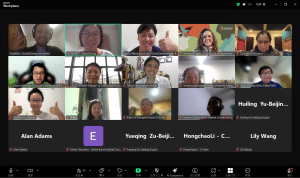The Ministry of Civil Affairs, along with 14 other governmental departments, has introduced a “Three-Year Action Plan” aimed at enhancing the quality of care services for rural left-behind children–those whose parents have moved to urban areas for work.
The initiative addresses crucial aspects of child welfare, with a focus on mental development, guardianship quality, targeted assistance, safety protection, and foundational strengthening.
Mental and emotional development initiatives
The plan emphasizes actions to improve the literacy of rural left-behind children, underscoring the importance of moral and ethical education, and learning socialist values. Efforts will be made to integrate psychological health education into school curricula and provide counselling services for children in need. Additionally, a focus on enriching cultural activities, such as guidance in reading, sports, and mental support services, aims to enhance the overall well-being of these children.
Quality guardianship measures
To enhance guardianship responsibilities, the plan calls for village committees to guide parents in fulfilling their legal obligations. Another crucial aspect is the strengthening of the foster care system, ensuring capable caregivers for left-behind children.
Targeted assistance
To provide targeted assistance, the plan advocates for comprehensive surveys of left-behind children, updating their information. This initiative aims to improve and expand support services, including financial aid, and enhance education support to prevent school dropouts.
Safety protection
To ensure the safety of children, the plan promotes safety education through various mediums, enhancing children’s awareness and self-protection skills. It emphasizes the prevention of risks in schools through rigorous safety measures.
NGO involvement
Foundational strengthening efforts include enhancing the training of child welfare workers and encouraging community participation in child welfare services. The involvement of NGOs in child welfare services through various collaborative approaches is also promoted.
Implementation timeline
The deployment phase, spanning November to December 2023, involves developing specific implementation plans and establishing collaborative mechanisms.
The main implementation phase, from January 2024 to December 2025, aims to achieve significant milestones in mental and emotional well-being, education, safety, and the establishment of a standardized team of child welfare workers.
The consolidation and improvement phase, from January 2026 to October 2026, involve summarizing achievements, addressing challenges, recognizing outstanding contributions, and promoting high-quality development in child welfare services.



